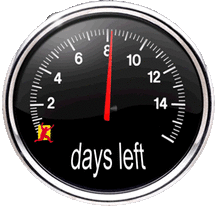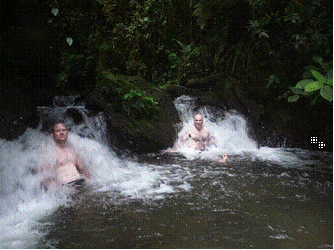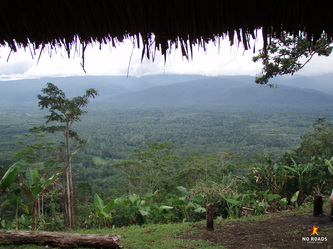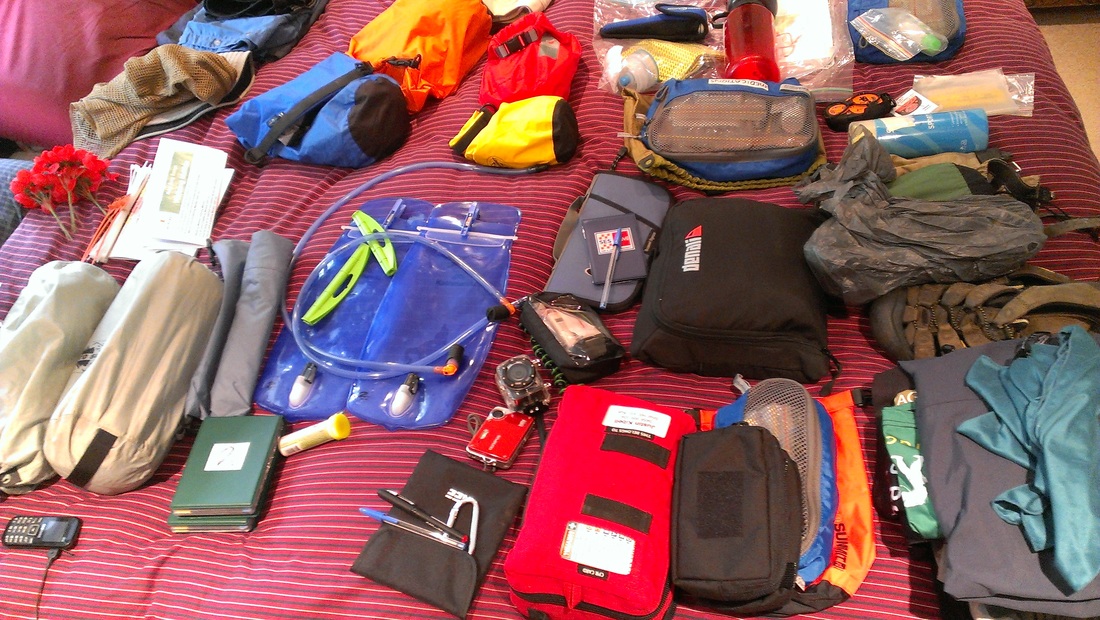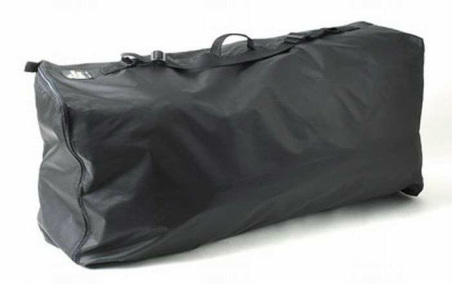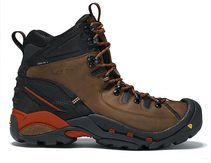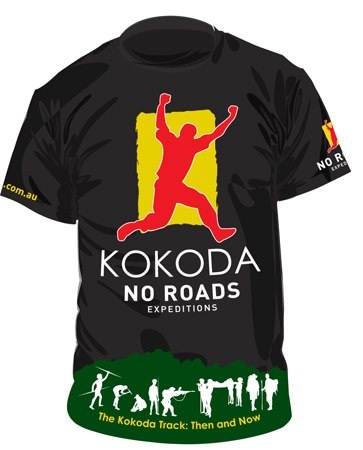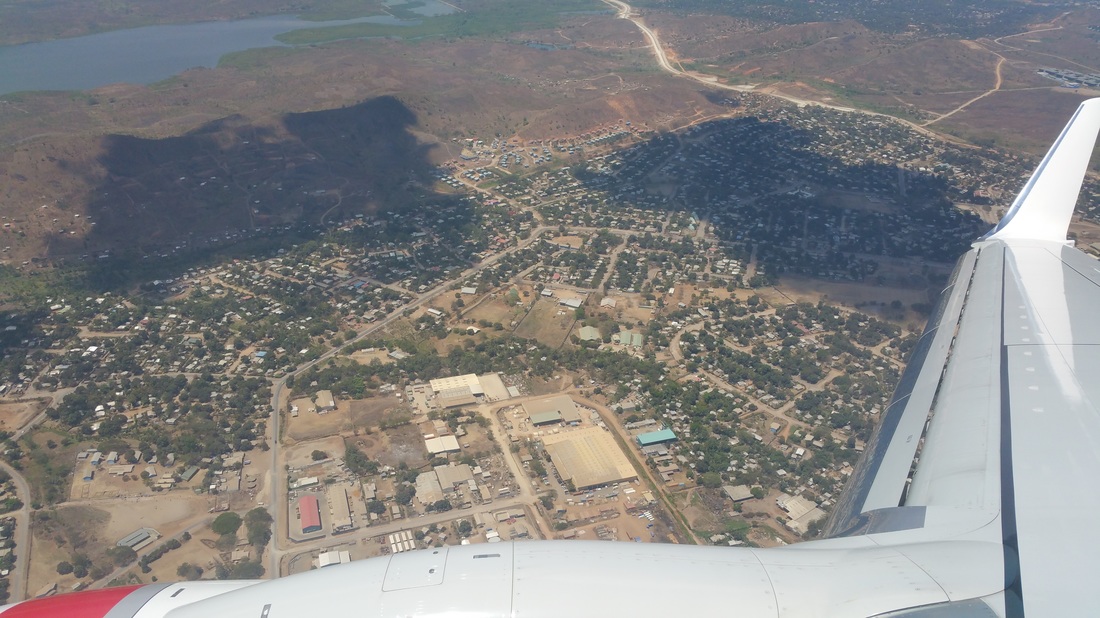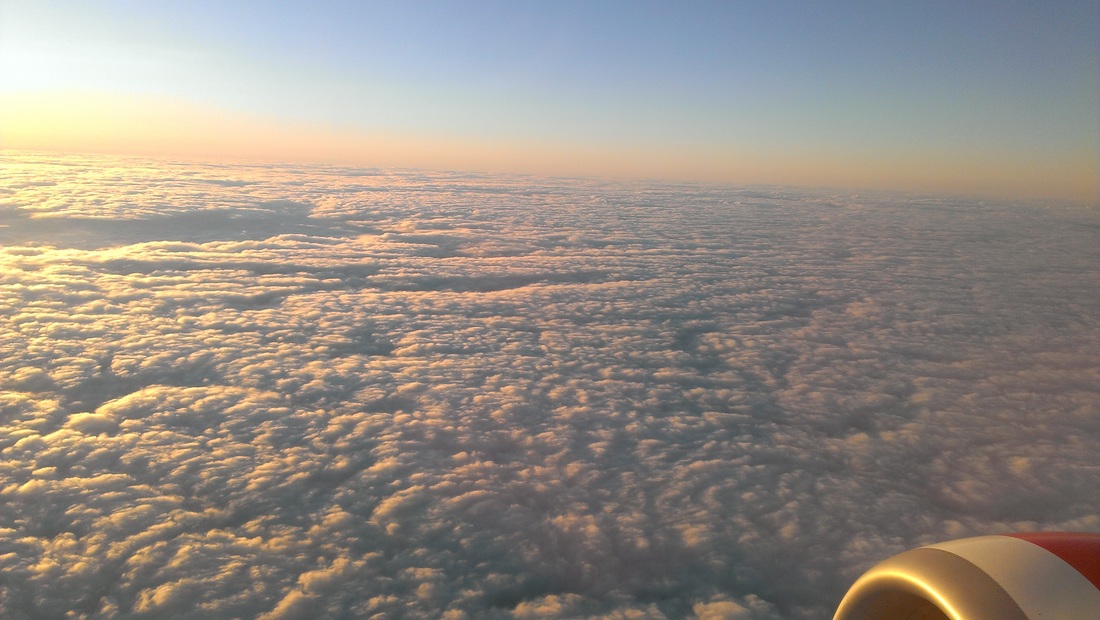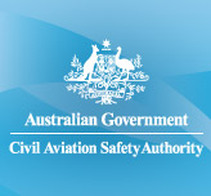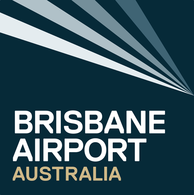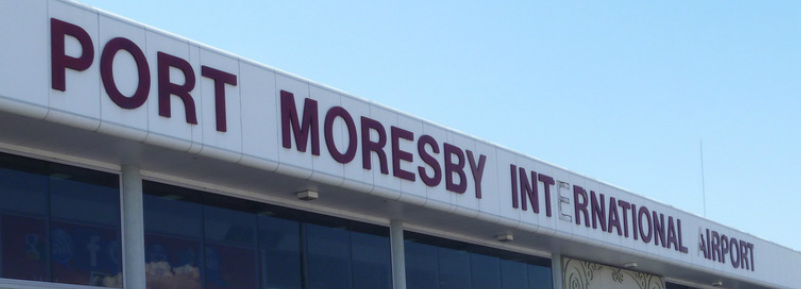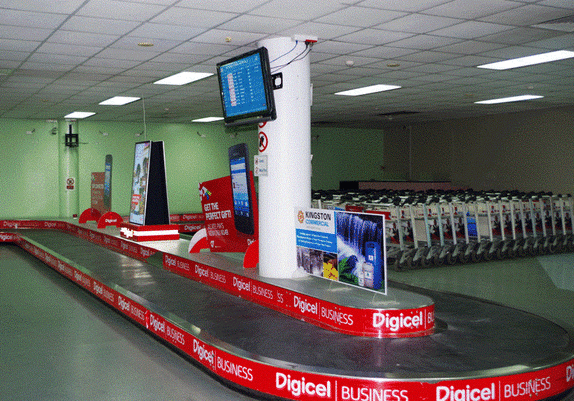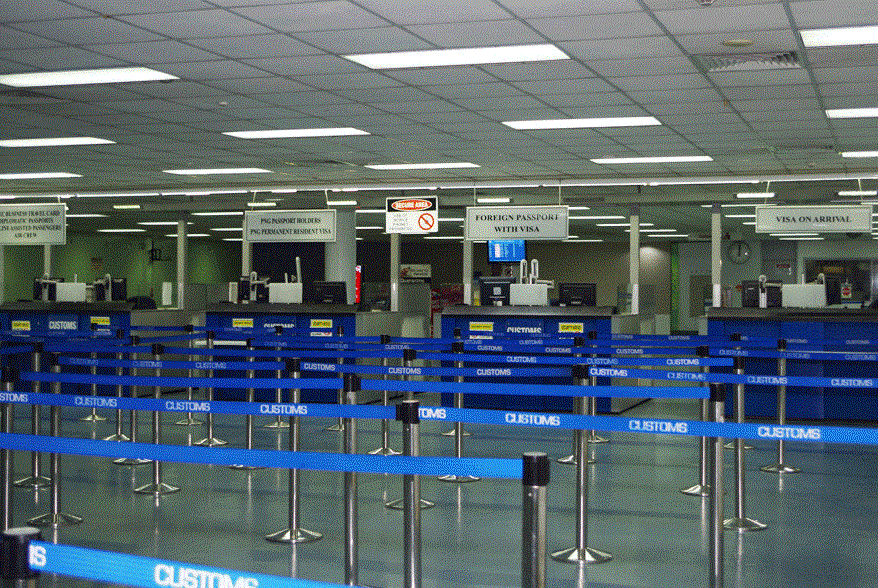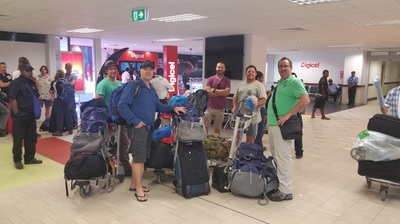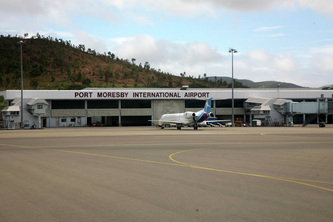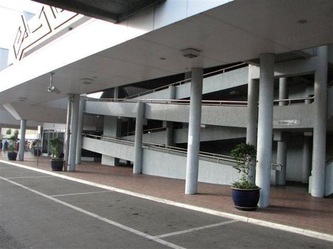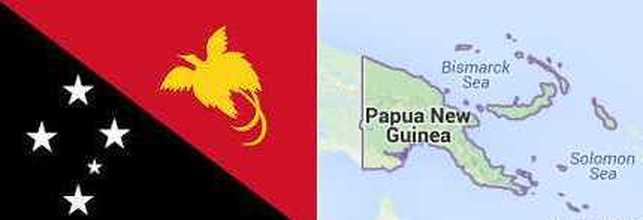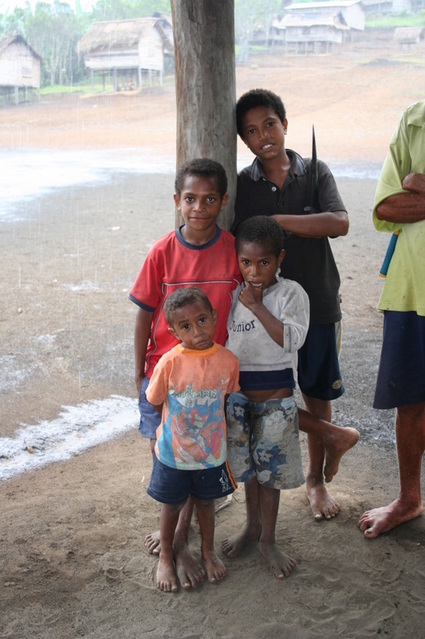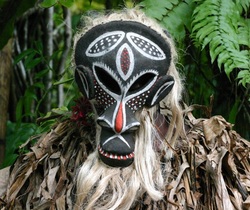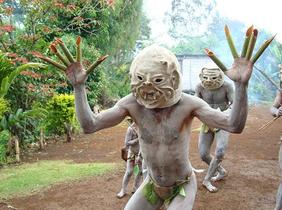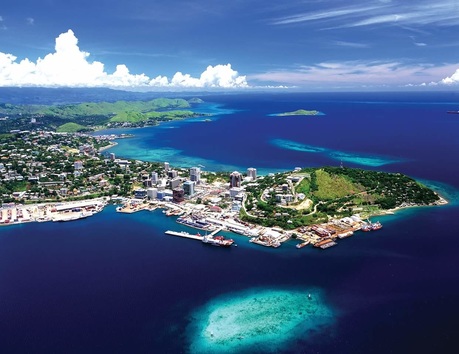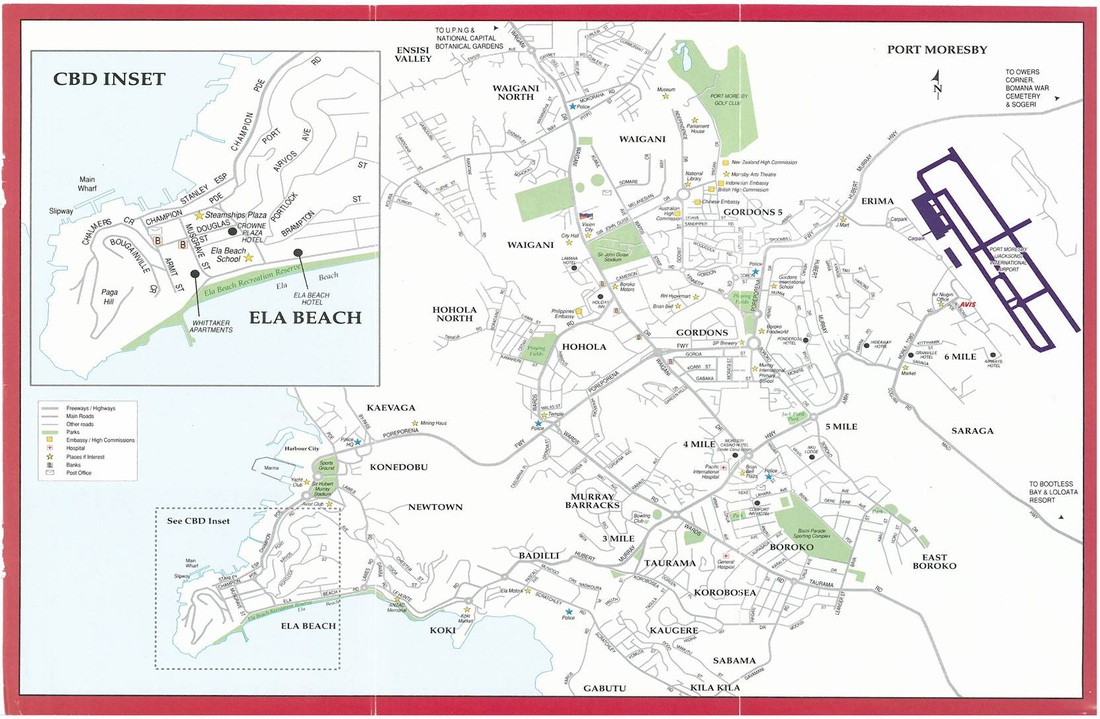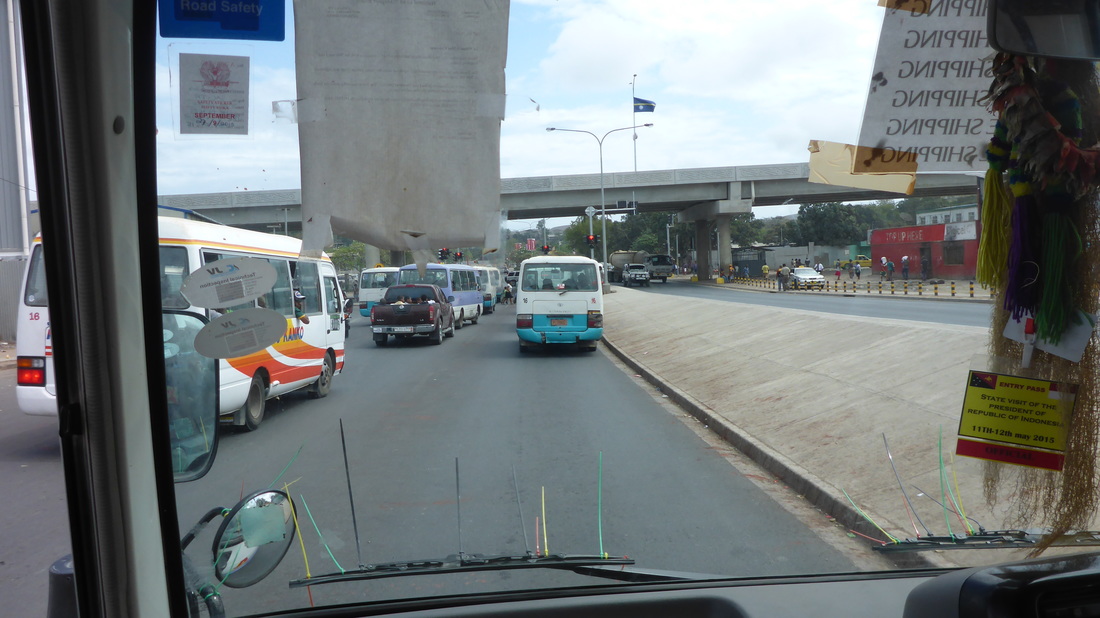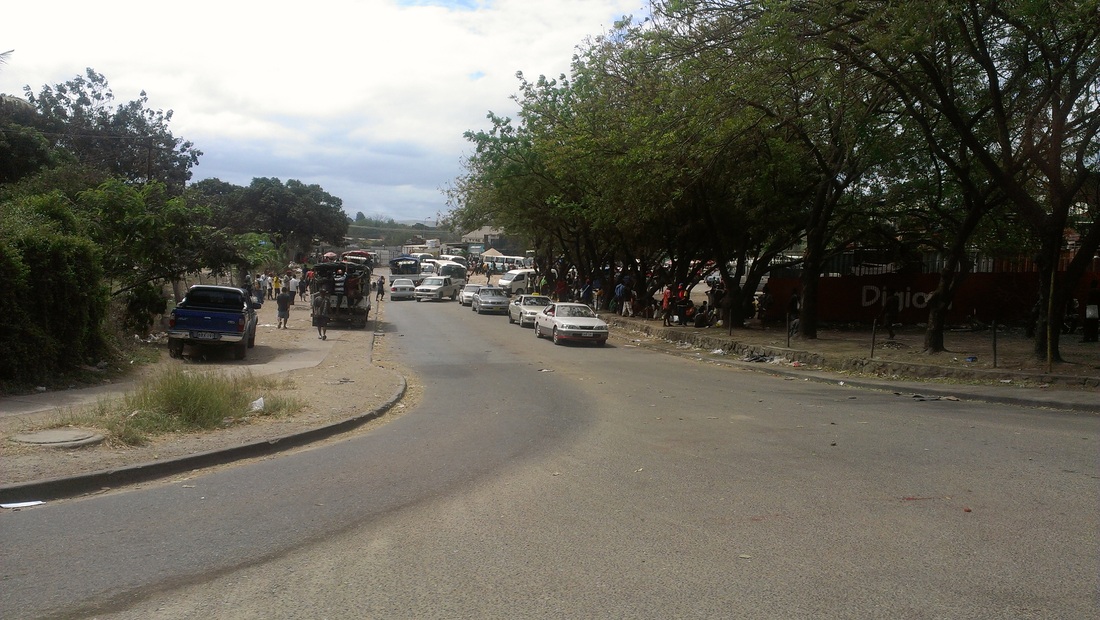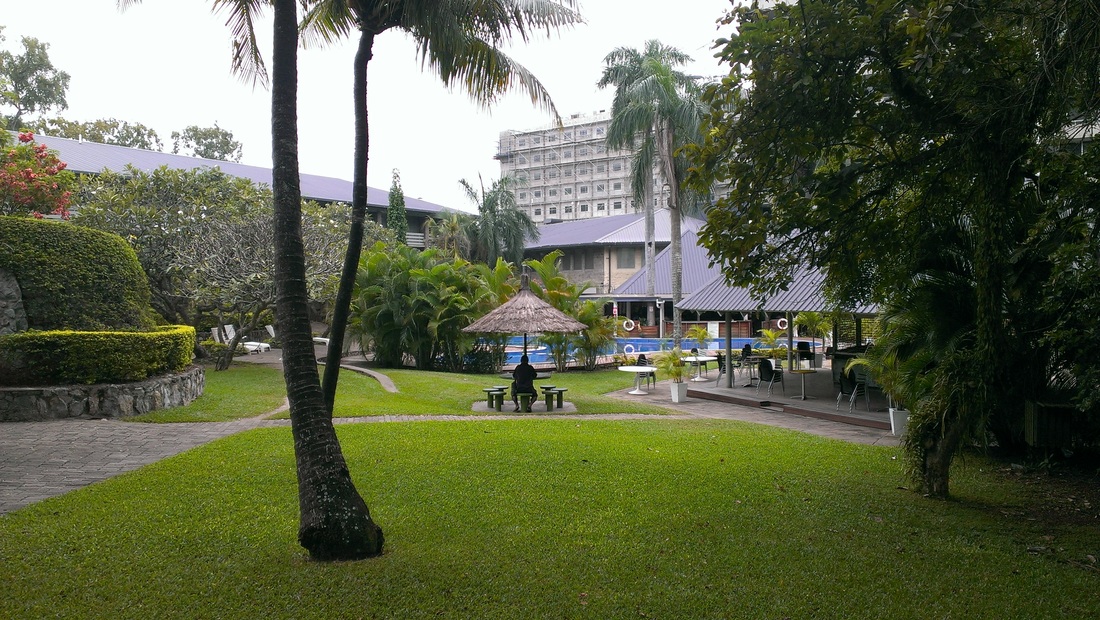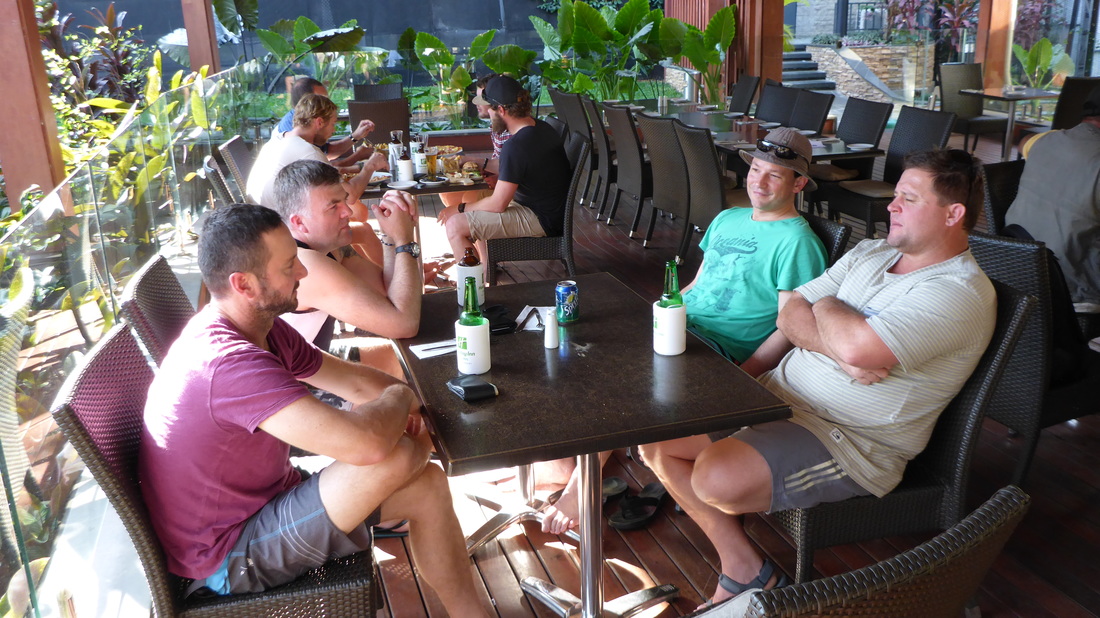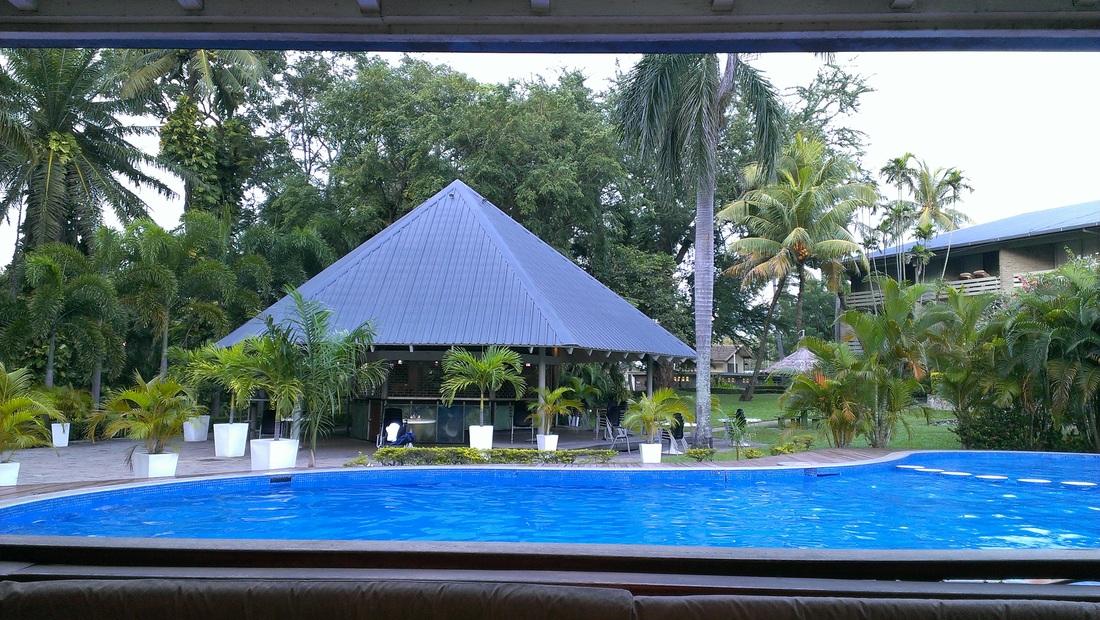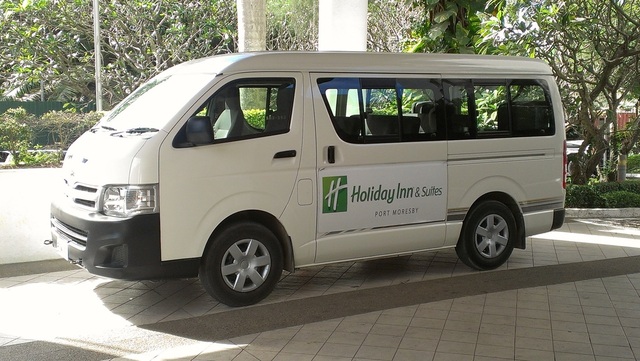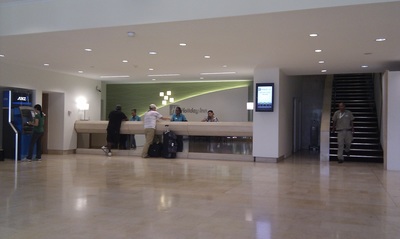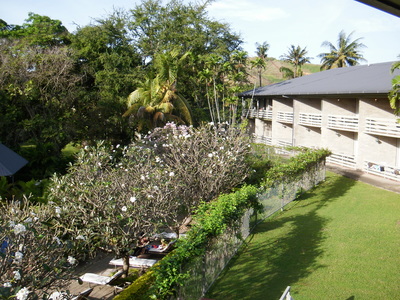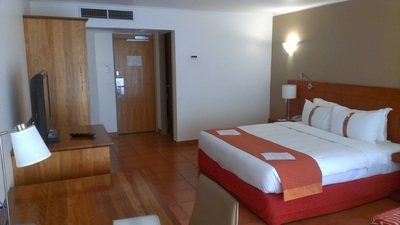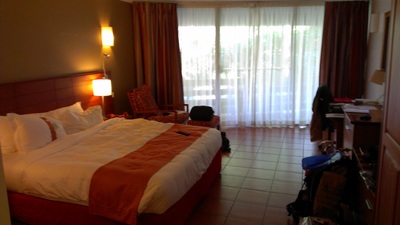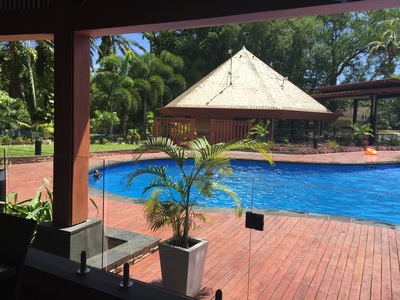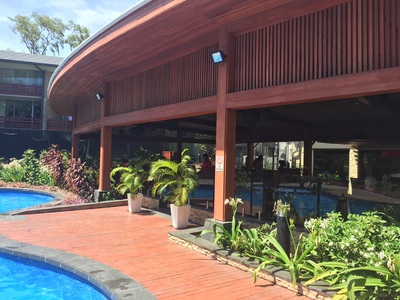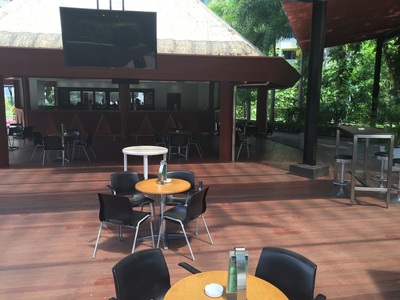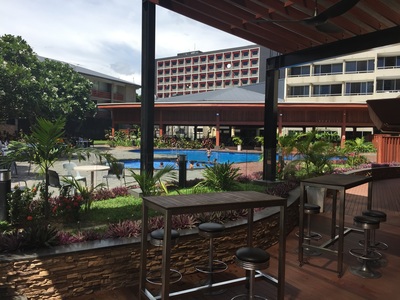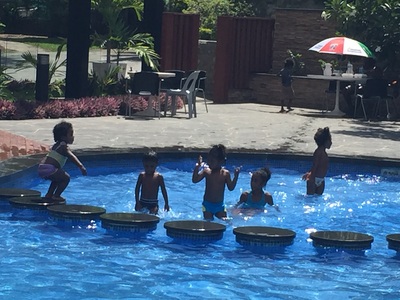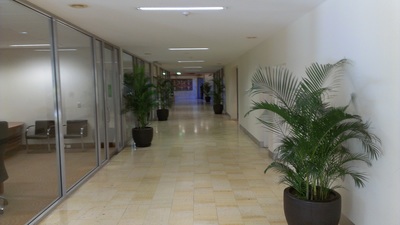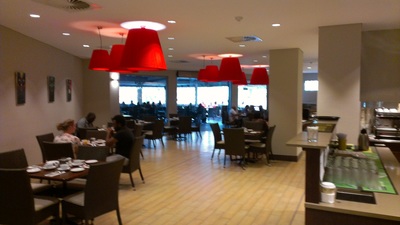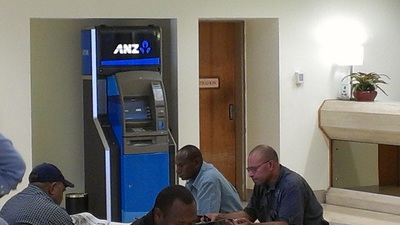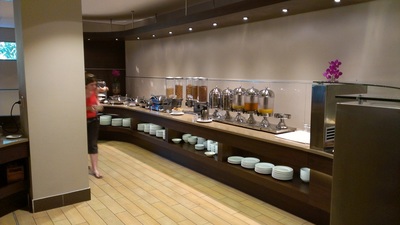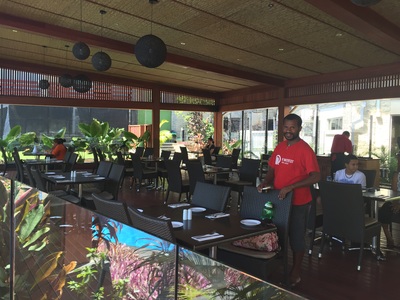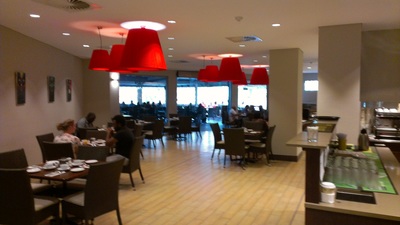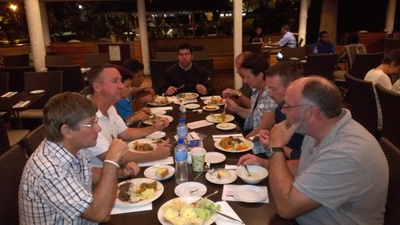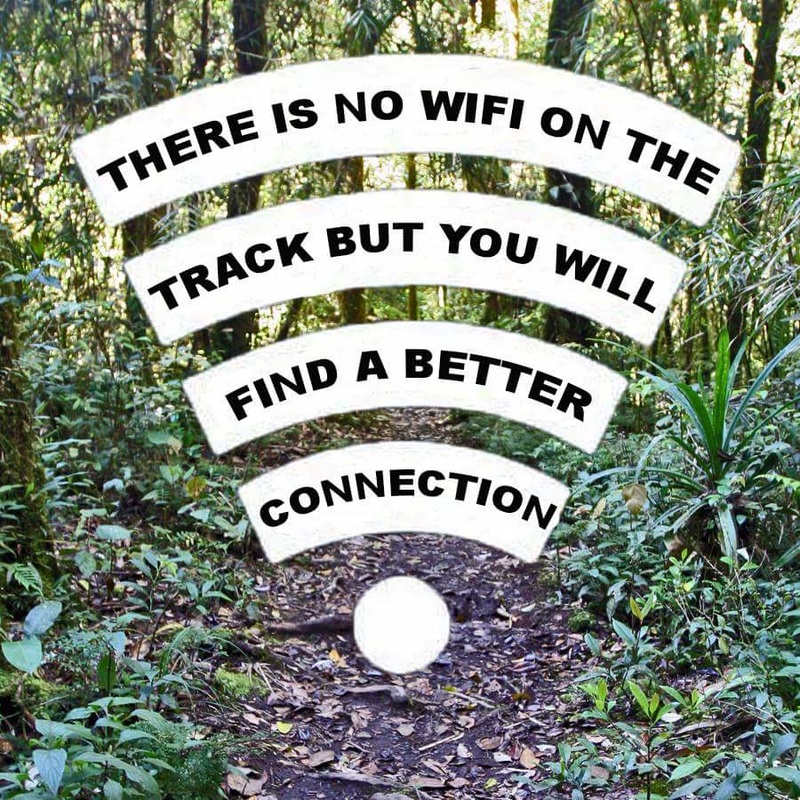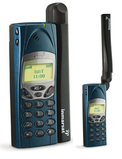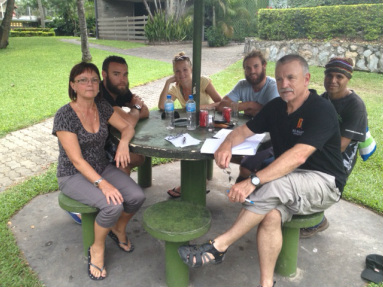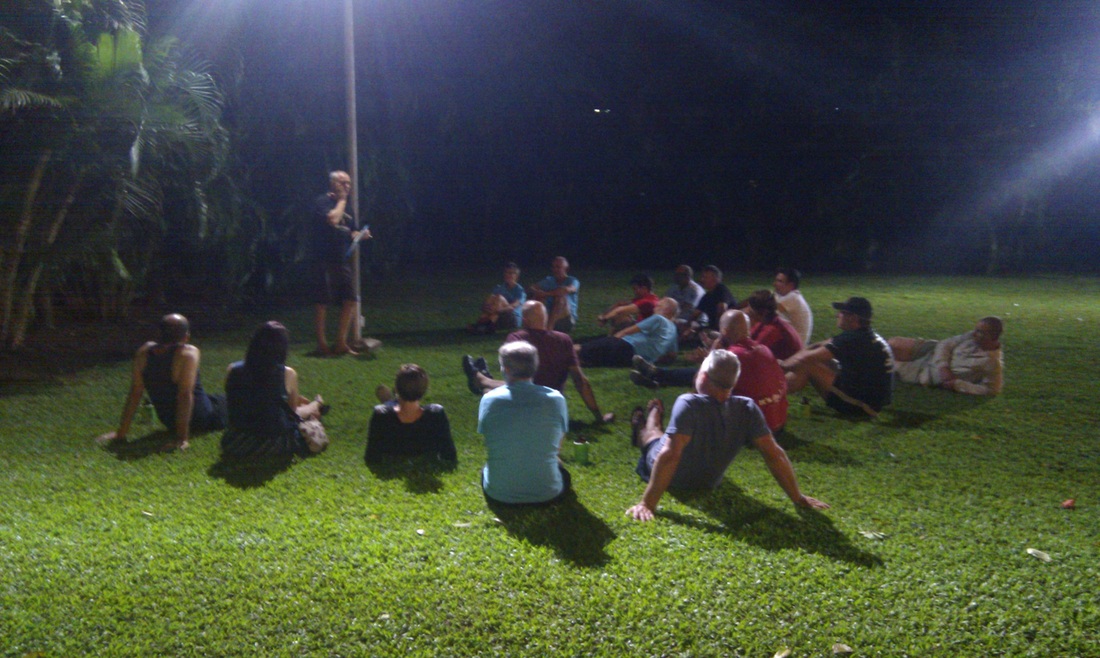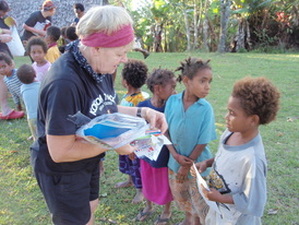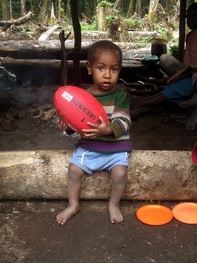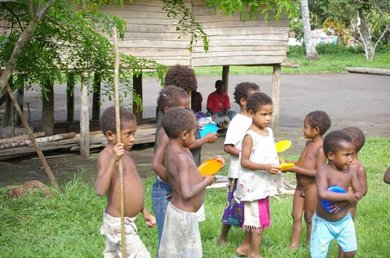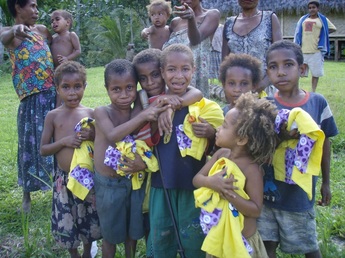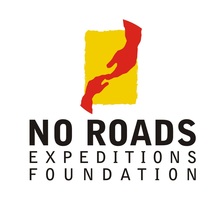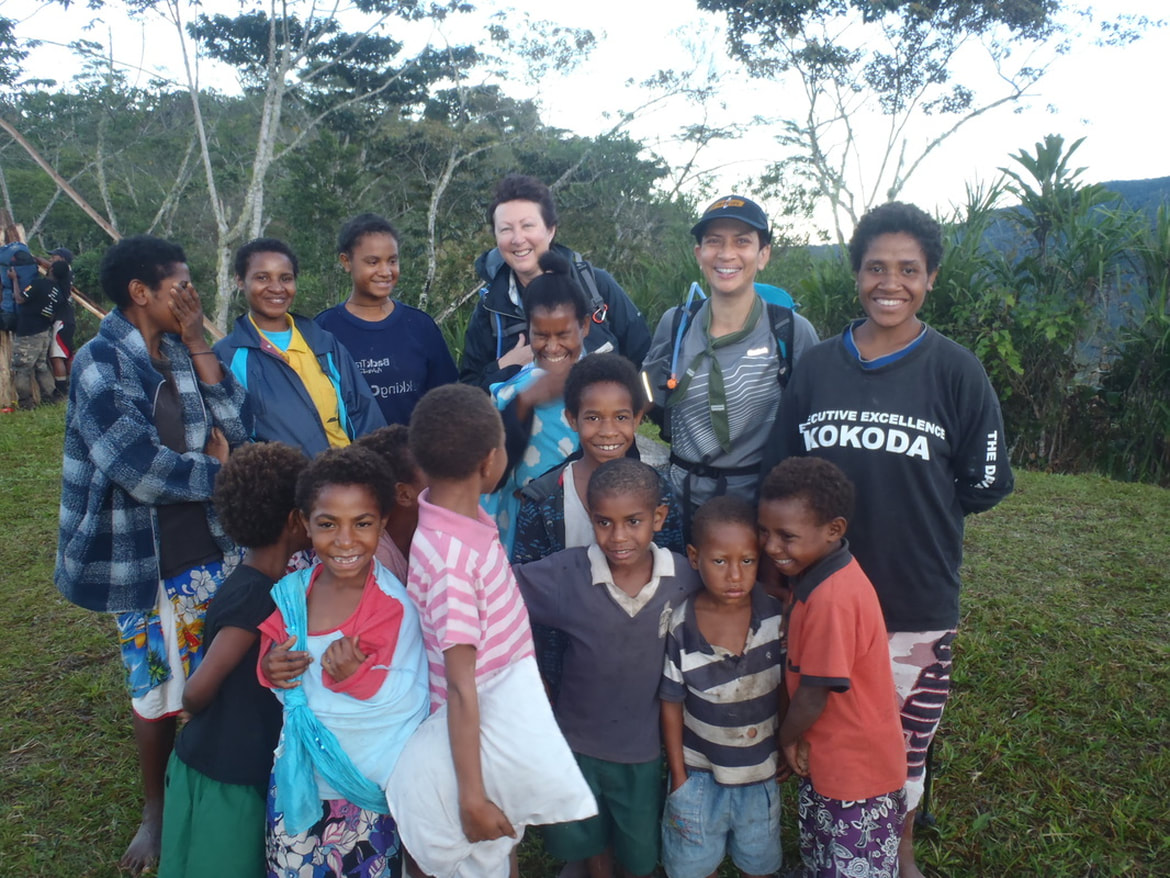Before Trekking Considerations
|
With only days to go before you pack your bags for your flights to Papua New Guinea we have many useful hints, tips and advice to share with you. Seasoned traveller or not, you will find something in the these pages that will make your pre-trek phase of your expedition go smoother.
Don't leave everything to the last minute with only days to go before you fly out. Follow the advice in these pages in particular about packing for travel, and tips about your flight over to PNG. When you arrive in PNG we will meet you at the airport with a welcoming smile. In this section you can find information about:
|
George Buchhorn - Expedition Guide
Marc Stafford - Expedition Guide
|
Arrows may not center when in edit mode. Once site is published, the arrow will be centered on the tab
When the site is published, this border and note will not show up.
Drag & drop your tab 1 content here
|
Ok, nerves may start to set in now, questions about "Have I prepared enough?" start surfacing, what do I still need to do, arrggh. This section should help you navigate through the last week before leaving for PNG.
For Aussies, the Australian Government recommend you register with Smart Traveller so they can assist you better if you run into trouble. Why not? It's free and very quick to fill in. |
Please Ask Questions?
If you have any questions at all, no matter how trivial they seem, contact your Expedition Guide or our No Roads Office to discuss them. It is important that you have everything in order before you arrive in PNG as it may be too late to fix them once overseas.
Medications
It may be time now just a few days before leaving, to begin your medications, such as anti-malaria tablets. Please check with your doctor as not all anti-malaria treatments are the same - they may have different schedules.
As a final reminder, anyone using any prescription medicines regularly should carry a supply for the whole duration of their expedition. Please consult your doctor and include items and medicines that may be required for you or for the area you are travelling in. No Roads does not supply any medicines and takes no legal responsibility for any medical treatment or professional medical support to our clients.
As a final reminder, anyone using any prescription medicines regularly should carry a supply for the whole duration of their expedition. Please consult your doctor and include items and medicines that may be required for you or for the area you are travelling in. No Roads does not supply any medicines and takes no legal responsibility for any medical treatment or professional medical support to our clients.
Cut Your Toenails
This may seem really odd, but cutting your toenails just before you go is a good idea. Your toenails can cause wear to your socks especially when going downhill and if not short enough they can hurt with the extra pressure during the trekking.
On the other hand, be careful not to cut them too short as you don't want to cause yourself an injury. Some people advise seeing a podiatrist before leaving and have their toenails cut professionally during the check-up.
If you would like to have your feet checked out by a podiatrist, we recommend the following one in the Melbourne, Bayside area if you are nearby.
Pivotal Podiatry Clinic, 844 Nepean Hwy, Hampton East, Vic, Australia. Phone: 03 99393339, website: pivotalpodiatry.com.au/
During your trek you do not want to get blisters. Check out our blister information in our section about safe trekking.
On the other hand, be careful not to cut them too short as you don't want to cause yourself an injury. Some people advise seeing a podiatrist before leaving and have their toenails cut professionally during the check-up.
If you would like to have your feet checked out by a podiatrist, we recommend the following one in the Melbourne, Bayside area if you are nearby.
Pivotal Podiatry Clinic, 844 Nepean Hwy, Hampton East, Vic, Australia. Phone: 03 99393339, website: pivotalpodiatry.com.au/
During your trek you do not want to get blisters. Check out our blister information in our section about safe trekking.
Last Few Days of Training
|
Adjust Your Diet?
Don't do anything too radical. Reduce the risk of getting something by playing it safe in the days before you leave and whilst you are travelling.
Stay away from foods that present a higher risk of food poisoning for example. Some people like to carbo load to prepare their body for the intense exercise they are about to embark on. If you have a personal trainer or fitness instructor, ask them what would be best. |
Relax
Look forward to no TV distractions, no meetings, no phone calls, no cars, no pagers, no email, no noise, no electricity, just ..... fresh clean air, amazing jungle scenery and sounds, doing something with your mates - old or new, crystal clear waterfalls, creeks and rivers, friendly humble people, and some of the best adventures you'll ever have!!!
Drag & drop your tab 2 content here
Travelling to Papua New Guinea
Packing for your travel to and from Port Moresby is different to packing for your trek on the Kokoda Track. You need to get all your gear over to the hotel in Port Moresby first, and then you can pack your backpack as you planned.
Final Gear Check
|
Having spent months preparing, it is time now to do the final check to ensure you have everything. You really don't want to arrive without your boots or another important item. See the section below on important items that cannot be replaced in Port Moresby at short notice.
Use our gear checklist to check off everything as you pack your bags to fly out. Sometimes it helps to have someone else do the checking with you. Resist the temptation to pack extra items you haven't trained with, planned for or really don't need.
|
Packing your non-Trekking Gear
|
In addition to your expedition clothing you will be hiking in, you will need clothes for your air travel to and from PNG, and some casual clothes and footwear for the hotel in Port Moresby.
If you are trekking and carrying your full backpack you may choose to bring an additional day pack sized backpack to carry over your additional clothes for the hotel etc.. and to keep your belongings at the hotel whilst you are on the trek. A backpack works well as you can carry it easier through airports and on / off shuttle buses. If you are hiring a personal guide to carry your backpack whilst you carry a smaller day pack, you may as well use your trekking day-pack to carry any additional clothing for the hotel and just use a small extra plastic bag full of items to leave at the hotel in the secure storeroom. |
How to Pack for Air Travel
Anyone who travels regularly by plane with a backpack will know that it is often useful to carry your backpack around by its normal straps on your back. However these straps can be torn off or damaged during baggage handling. Consider wrapping your pack in plastic, securing tightly all straps, or buying/borrowing a backpack travel tote bag that fits over the entire bag preventing the straps from being caught.
If you are bringing trekking poles with you they will have to go with your checked-in luggage (most likely with your backpack). Fully collapse them and ensure the spike is covered with the protective cap. Consider packing them tightly against your pack to minimise the chance they will be bent or broken.
PNG Quarantine restrictions prevent travellers from bringing fruit and vegetables into the country.
You will be passing through both Australian and PNG customs so make sure that you declare any food. Ensure your food is still wrapped in its original packaging and you can separate it when you arrive at the Hotel. Don't pack any water as you will fill up in PNG. Take note of the airline travel regulations regarding liquids in containers. Often trekkers are carrying lots of lotions etc.. so make sure they are not in your carry-on bag.
If you are bringing trekking poles with you they will have to go with your checked-in luggage (most likely with your backpack). Fully collapse them and ensure the spike is covered with the protective cap. Consider packing them tightly against your pack to minimise the chance they will be bent or broken.
PNG Quarantine restrictions prevent travellers from bringing fruit and vegetables into the country.
You will be passing through both Australian and PNG customs so make sure that you declare any food. Ensure your food is still wrapped in its original packaging and you can separate it when you arrive at the Hotel. Don't pack any water as you will fill up in PNG. Take note of the airline travel regulations regarding liquids in containers. Often trekkers are carrying lots of lotions etc.. so make sure they are not in your carry-on bag.
Security of your Essential Trekking Equipment
|
It is preferable that your trekking footwear, trek clothing and sleeping bag (if possible) is never out of your sight whilst travelling to PNG as it cannot be replaced in Port Moresby if it gets lost with your check-in baggage in the hold of the plane.
We suggest that you wear your boots whilst travelling or carry them in your hand luggage along with your trek clothing and sleeping bag (if it fits). |
No Roads Kokoda T-Shirts
Flying to PNG
Most people from Australia will head to Brisbane Airport and fly from Brisbane to Port Moresby. It is important to note that Brisbane Domestic Airport and Brisbane International Airport are separated by a short 5-10min train or taxi ride. Allow at least 1.5hrs between flight times to ensure you can move between airport terminals, check-in and board the International flight in time.
You will need to board the airtrain or catch a taxi to transfer to the Brisbane International Airport. Some airlines have deals where the airtrain ticket cost is included in the airfare. Check the Brisbane Airport website for more information including terminal maps and facilities.
You will need to board the airtrain or catch a taxi to transfer to the Brisbane International Airport. Some airlines have deals where the airtrain ticket cost is included in the airfare. Check the Brisbane Airport website for more information including terminal maps and facilities.
Please note that Air Niugini and Qantas have a code-sharing arrangement that includes an interline baggage agreement which means you can check your bags through to Port Moresby when connecting between these two airlines.
Travel Sickness Medication
If you suffer from air travel sickness or fear of flying and take some form of medicine to reduce your illness or stress, make sure you don't take too much! Remember that you will be walking in a day or so and it is important you are ready to walk once we exit the aircraft in Kokoda (or Popondetta). The plane flight to Kokoda (or Popondetta) is short so hopefully you will not need any medication for this short trip.
Jacksons International Airport - Port Moresby
Jacksons International Airport consists of two terminals: The Domestic Terminal housing Air Niugini and Airlines PNG, and the International Terminal servicing all other airlines. The International Terminal features four aircraft parking bays, two of which are equipped with aerobridges. The two terminals are linked by a covered walkway.
Airport Facilities
The Jacksons International Airport is not exactly Hong Kong or Heathrow (probably good in some respects). It is small and has very few facilities. There are of course the obligatory toilets.
There is an ATM just through Immigration and another ATM and money changer in the arrival hall. There is also a complimentary telephone in the arrival hall for the Holiday Inn. That is about it.
There is an ATM just through Immigration and another ATM and money changer in the arrival hall. There is also a complimentary telephone in the arrival hall for the Holiday Inn. That is about it.
Customs and PNG Visa
As at any International Airport you will need to fill in customs arrival and departure information slips that will either be provided to you on the plane or available in the departure area. You will go through metal detectors and have to remove metal objects. You will be asked if you have any food or wooden items etc. to declare and may be searched.
The queue at customs upon arrival is usually long and can take a while to process, both at immigration and at your luggage check. Be patient and make sure you are in the correct queue, either the one for someone with a PNG visa or without.
The queue at customs upon arrival is usually long and can take a while to process, both at immigration and at your luggage check. Be patient and make sure you are in the correct queue, either the one for someone with a PNG visa or without.
Who will meet us and where?
You will be met at the International Airport in Port Moresby by one or more of our friendly staff. They will usually be wearing a No Roads t-shirt and be aware that you are arriving. Please go up to them and introduce yourself to them, they won't bite.
Drag & drop your tab 3 content here
About PNG & Port Moresby
|
Papua New Guinea, or PNG for short, is the eastern half of the island of New Guinea. The western half is the West Papua (formerly Irian Jaya) Province of Indonesia. PNG lies south of the equator, about 150 kilometres north of Australia. The country is made up of the mainland which is part of New Guinea Island (the second largest island in the world after Greenland) and nearly 700 islands which are scattered off the mainland.
Human remains have been found in Papua New Guinea that date back to about 50,000 years ago. These ancient inhabitants of Papua New Guinea probably had their origins in Southeast Asia, themselves originating in Africa 50,000 to 70,000 years ago. Until 1975, PNG was an Australian colony while its previous years saw occupation and settlement by the Dutch, British, German and Japanese. Today, PNG is a member of the Commonwealth of Nations, and follows the Westminster system of government with a Prime Minister and a Governor General as Head of State representing the Queen of England. PNG’s population currently stands at 7 million people with around a third of these people living in the rugged highlands. There are four regions and 20 provinces, each governed by a Provincial Government which have similar constitutional arrangements to the National Government and have concurrent power with the latter in areas such as agriculture, business development, town planning, forestry and natural resources. National laws, however, take precedence over provincial laws. PNG is one of the world’s most interesting tourist destinations due to its history, diverse cultures and languages, pristine underwater world, dense tropical rainforests, unique and exotic plants, flowers, trees, birds and wildlife. PNG is truly “last frontier” territory and nowhere is this description more fitting than in its rugged interior with its dense tropical jungles, high intervening mountains, deep valleys and gorges and fast flowing rivers and a people whose lives have not been heavily impacted by civilization. |
Much of PNG’s land mass of approximately 470,000 square kilometers is pristine, untouched territory, isolated by history and geography and providing the perfect playground for culture, adventure and nature enthusiasts. From the PNG Highlands, to the Islands, to the Sepik and the Coast, there is a unique adventure, waiting to be experienced, whatever your travel needs may be.
In Papua New Guinea, you can walk down memory lane and honour the courage and bravery of world war heroes when you visit cemeteries and war relics in the form of wrecked planes, ships, ammunitions, intricate tunnel systems, bunkers and monuments. For the cultural enthusiasts, some of PNG’s major and unique cultural extravaganzas include the Goroka, Mt Hagen, Wabag, Hiri Moale Shows and Mask Festivals which provide a sample of PNG’s 800 unique cultures and 700 languages which are showcased in songs, dances and rituals.
In Papua New Guinea, you can walk down memory lane and honour the courage and bravery of world war heroes when you visit cemeteries and war relics in the form of wrecked planes, ships, ammunitions, intricate tunnel systems, bunkers and monuments. For the cultural enthusiasts, some of PNG’s major and unique cultural extravaganzas include the Goroka, Mt Hagen, Wabag, Hiri Moale Shows and Mask Festivals which provide a sample of PNG’s 800 unique cultures and 700 languages which are showcased in songs, dances and rituals.
To be in touch with nature, you can take a cruise up and down the 1000-kilometre long Sepik River which is home to some of the best and most intricate primitive arts and crafts in PNG, represented by face masks, wood carvings, baskets, traditional “haus tambarans” (spirit houses) and skin cutting ceremonies. Bird watchers will not be left disappointed as PNG is home to 38 of the 43 known species of the bird of paradise, hundreds of endemic orchid species and tropical fishes and corals, found in its popular and natural dive sites.
For the avid trekker, PNG does not disappoint as there is a choice of unique treks and climbs including Mt Wilhelm, which at 4506 meters is PNG’s highest peak and the historically significant 96km Kokoda Trail/Track, which runs along the Owen Stanley range between Port Moresby’s Sogeri Plateau to Kokoda in Oro (formerly Northern) Province.
For the avid trekker, PNG does not disappoint as there is a choice of unique treks and climbs including Mt Wilhelm, which at 4506 meters is PNG’s highest peak and the historically significant 96km Kokoda Trail/Track, which runs along the Owen Stanley range between Port Moresby’s Sogeri Plateau to Kokoda in Oro (formerly Northern) Province.
Climate
There are two seasons in PNG. It’s either wet or dry throughout the country at different times of the year. Coastal areas experience temperatures that range between 24 to 35 degrees celcius with high humidity. In the cooler Highlands, you can expect anything between 12 to 28 degrees celcius and with less humidity. The wet season is normally from November to March. The Kokoda Track trekking season usually has a short break during the December to February months when the Owen Stanley Ranges are too wet.
Language
PNG has about 800 languages and most Papua New Guineans speak at least two languages. The official national language is English and the two other most commonly used languages are Hiri Motu and Tok Pisin. Most porters will speak English, Motu and one other local language. Always ask if you do no understand what’s being said, and if you ask a local a question and they don't understand, they may answer "yes" even though they don't understand.
Local Customs
You should be aware that the traditional custom of 'payback' is often practised in Papua New Guinea. Australians who engage in illegal or inappropriate sexual or financial relations run the risk of extrajudicial responses from offended parties. Demands for compensation for property damage, including to livestock, are common. There are conservative standards of dress and behaviour in Papua New Guinea. You should take care not to offend. You should seek permission before taking photographs of individuals and cultural sites (for example, spirit houses).
Time
Papua New Guinea is on the same time as winter time in Sydney, Australia, or Eastern Standard Time (EST) in Australia.
Travel Advice: www.smartraveller.gov.au
From the Kokoda Track Foundation
Land of the unexpected… Australia’s nearest neighbour... Just 3.6 km separates our two countries… so close and yet in other ways so far, because of all nearest neighbours in the world, Australia and PNG have the greatest disparity of poverty and wealth as measured by the United Nations Human Development Index. Since Independence in 1975, PNG’s population has more than doubled and is now quickly approaching 7 million people. Yet in those 37 years, PNG’s services and infrastructure have withered and thousands of schools, health centres and aid posts have closed, fallen apart, or have no adequately trained teachers or health workers. 90% of Papua New Guineans are subsistence farmers and half the population lives in poverty... on less than $1 a day. More than half of the population is under 20 years of age. PNG’s remote areas languish without access to the basic education and healthcare systems that would unlock this poverty cycle. As a result, diseases long eradicated in the developed world - malaria, tuberculosis, cholera – are rife in PNG and preventable disease is widespread across the nation. High birth rates and lack of adequate prenatal and neonatal services mean that many infants die before their first birthday and maternal death rates are among the highest in the world. An estimated 12,000 children under five die every year - around the same number as 20 years ago - and as a result, PNG is one of just a few nations worldwide not to have made any improvement in this area.
There are two seasons in PNG. It’s either wet or dry throughout the country at different times of the year. Coastal areas experience temperatures that range between 24 to 35 degrees celcius with high humidity. In the cooler Highlands, you can expect anything between 12 to 28 degrees celcius and with less humidity. The wet season is normally from November to March. The Kokoda Track trekking season usually has a short break during the December to February months when the Owen Stanley Ranges are too wet.
Language
PNG has about 800 languages and most Papua New Guineans speak at least two languages. The official national language is English and the two other most commonly used languages are Hiri Motu and Tok Pisin. Most porters will speak English, Motu and one other local language. Always ask if you do no understand what’s being said, and if you ask a local a question and they don't understand, they may answer "yes" even though they don't understand.
Local Customs
You should be aware that the traditional custom of 'payback' is often practised in Papua New Guinea. Australians who engage in illegal or inappropriate sexual or financial relations run the risk of extrajudicial responses from offended parties. Demands for compensation for property damage, including to livestock, are common. There are conservative standards of dress and behaviour in Papua New Guinea. You should take care not to offend. You should seek permission before taking photographs of individuals and cultural sites (for example, spirit houses).
Time
Papua New Guinea is on the same time as winter time in Sydney, Australia, or Eastern Standard Time (EST) in Australia.
Travel Advice: www.smartraveller.gov.au
From the Kokoda Track Foundation
Land of the unexpected… Australia’s nearest neighbour... Just 3.6 km separates our two countries… so close and yet in other ways so far, because of all nearest neighbours in the world, Australia and PNG have the greatest disparity of poverty and wealth as measured by the United Nations Human Development Index. Since Independence in 1975, PNG’s population has more than doubled and is now quickly approaching 7 million people. Yet in those 37 years, PNG’s services and infrastructure have withered and thousands of schools, health centres and aid posts have closed, fallen apart, or have no adequately trained teachers or health workers. 90% of Papua New Guineans are subsistence farmers and half the population lives in poverty... on less than $1 a day. More than half of the population is under 20 years of age. PNG’s remote areas languish without access to the basic education and healthcare systems that would unlock this poverty cycle. As a result, diseases long eradicated in the developed world - malaria, tuberculosis, cholera – are rife in PNG and preventable disease is widespread across the nation. High birth rates and lack of adequate prenatal and neonatal services mean that many infants die before their first birthday and maternal death rates are among the highest in the world. An estimated 12,000 children under five die every year - around the same number as 20 years ago - and as a result, PNG is one of just a few nations worldwide not to have made any improvement in this area.
PNG Capital City - Port MoresbyOnce you land in Papua New Guinea you will spend some time in Port Moresby before leaving for your trek along the Kokoda Track.
Port Moresby is the capital and largest city of Papua New Guinea (PNG). The city is located on the shores of the Gulf of Papua. Its population is around 300,000 and growing quickly. The indigenous people of the area are the Motu-Koitabu. Moresby, as it is commonly known, got its name from Captain John Moresby who arrived in 1873 as the first European visitor. |
The city is quite spread out. The original colonial settlement was by the sea and this is still the port area, as well as the main business and banking district. On the hills above are upmarket residences. Closer to the airport, separated from the original town by hills, is Waigani, a 1970s development built to house the Government offices of the newly Independent country of Papua New Guinea. Nearby are the housing areas of Boroko and Gordons, which also contain most of the large stores.
Safety in Port Moresby
Port Moresby has a well-deserved reputation of being very dangerous. Car jackings, muggings and worse are common. There is a great deal of concern about the level of crime and civil disorder and about the ability and willingness of the police to cope. Police officers have been found to be complicit in major crime and police brutality against minor offenders, complainants and witnesses and this has been the subject of criticism from the international group Human Rights Watch.
You will however be safe at your hotel as it situated within a secure perimeter fence and is guarded.
Travel Advice for PNG including Port Moresby: www.smartraveller.gov.au
You will however be safe at your hotel as it situated within a secure perimeter fence and is guarded.
Travel Advice for PNG including Port Moresby: www.smartraveller.gov.au
More information about Port Morseby can be found at the following locations on the Internet:
- Wikipedia - http://en.wikipedia.org/wiki/Port_Moresby
- Lonely Planet - http://www.lonelyplanet.com/papua-new-guinea/port-moresby
- Australian High Commission - http://www.png.embassy.gov.au/pmsb/home.html
Drag & drop your tab 4 content here
Hotel Accommodation - Port Moresby
The booking with No Roads Expeditions includes two nights (one night before and one night after your trek) hotel accommodation in Port Moresby and all accommodation on the Track.
On both Australian-led and locally-led trips we prefer to use the Holiday Inn, one of the best hotels in Port Moresby. It is modern, well managed and has great facilities.
Street Address: Corner of Waigani Dr & Wards Rd, Boroko, Port Moresby 121, Papua New Guinea.
On both Australian-led and locally-led trips we prefer to use the Holiday Inn, one of the best hotels in Port Moresby. It is modern, well managed and has great facilities.
Street Address: Corner of Waigani Dr & Wards Rd, Boroko, Port Moresby 121, Papua New Guinea.
Airport Transfers
|
The No Roads Expeditions staff at the airport will have already arranged for the hotel bus (or other transport) to be ready to pick you up and take you on the short 15-20 min trip to the hotel. As soon as you exit the customs area of the airport and enter the large reception area, you should be met by one of our staff in the No Roads Expeditions uniform.
If for some reason you arrive on a different flight than expected, or there is no-one to meet you, use the Hotel guest phone to call for the bus. The bus may take some time to arrive so please remain in the reception area where it is safer. We advise: DO NOT take a taxi or catch a ride with anyone else except the Holiday Inn Hotel bus or with a No Roads Expeditions staff member wearing our t-shirt. |
Room Allocation
All hotel rooms are twin share unless otherwise arranged with the NRE Office as part of your booking. You will only be in them for one night before and after the trek and sharing tents/guest houses on the track so this will be your first time to meet others on your expedition.
The expedition guide will arrange for your room to be ready and give you a key upon arrival. If for some reason your expedition guide is not around, check with reception as they should have you listed and allocated to a room already.
The expedition guide will arrange for your room to be ready and give you a key upon arrival. If for some reason your expedition guide is not around, check with reception as they should have you listed and allocated to a room already.
Hotel Facilities
The Holiday Inn hotel has excellent facilities. The twin share rooms are good with enough space to spread out all your gear and pack.
- The power is the same as Australia with 240volt power outlets.
- You can use the pool and any of the other facilities found on the grounds that do not incur any additional charge.
- The water quality is probably very good but we strongly advise you drink either bottled water or use the kettle to boil water and then cool it in the water jug in the fridge. The last thing you want is a water based belly bug before you even start trekking.
- There is a limited health/fitness center and tennis courts/squash courts you can use (but remember you will get lots of exercise on the track so now is time to rest).
- Postal service (very limited supply of stamps to purchase) - bring your own Australian stamps for postcards. They may even arrive home before you....
- A boot cleaning service is very handy at the end of your trek, fee applies. See the Cleaning section for more information.
Hotel Meals
All hotel meals (apart from the standard continental breakfast which is included in the standard expedition duration costs), snacks and drinks at the hotel are at your expense and must be paid for before leaving on your trek when you settle your room bill (your bill will be zero if you don't charge anything to your room as the room is paid for).
At the Holiday Inn Hotel, most expedition groups meet and have dinner in the hotel restaurant which has a great selection of food. Check to find out what everyone else is planning to do. If you have any special dietary requirements, talk to the restaurant staff well before dinner to ensure something can be prepared.
The restaurant and poolside bar (when open) sells drinks and snack food. The room mini-bar food is very expensive as usual. No Roads does not recommend you charge anything to your room as this will complicate and delay departure.
At the Holiday Inn Hotel, most expedition groups meet and have dinner in the hotel restaurant which has a great selection of food. Check to find out what everyone else is planning to do. If you have any special dietary requirements, talk to the restaurant staff well before dinner to ensure something can be prepared.
The restaurant and poolside bar (when open) sells drinks and snack food. The room mini-bar food is very expensive as usual. No Roads does not recommend you charge anything to your room as this will complicate and delay departure.
Hotel Baggage Store
The Hotel has a free baggage storeroom just behind reception. Whilst it is locked and has CCTV surveillance, we strongly recommend you also lock your bags with baggage locks or secure tags/cable ties as extra protection against opportunistic theft.
This hotel baggage room is where you leave your hotel/carry-on bag whilst you are on your trek. Do not have any loose items attached to the outside of your bag(s) or in outside pockets.
We strongly recommend that you DO NOT BRING expensive items of any kind (laptops, iPads, jewellery, large sums of cash, expensive clothes, etc.) that are not planned to be used on the trekking section of the expedition. This will help avoid disappointment due to theft at the hotel.
To use the hotel baggage room, simply talk to reception and they will ask you to fill in a luggage slip and you keep the tear off part. Make sure you take this luggage tag with you on the trek so you can retrieve your belongings upon return.
There is also a hotel safe which can also be used to secure small valuable items. Please bring a large envelope to store any items in the safe. Write your personal contact details on this envelope.
Please ensure you bring the following essential items with you on the trek, all in a waterproof bag:
This hotel baggage room is where you leave your hotel/carry-on bag whilst you are on your trek. Do not have any loose items attached to the outside of your bag(s) or in outside pockets.
We strongly recommend that you DO NOT BRING expensive items of any kind (laptops, iPads, jewellery, large sums of cash, expensive clothes, etc.) that are not planned to be used on the trekking section of the expedition. This will help avoid disappointment due to theft at the hotel.
To use the hotel baggage room, simply talk to reception and they will ask you to fill in a luggage slip and you keep the tear off part. Make sure you take this luggage tag with you on the trek so you can retrieve your belongings upon return.
There is also a hotel safe which can also be used to secure small valuable items. Please bring a large envelope to store any items in the safe. Write your personal contact details on this envelope.
Please ensure you bring the following essential items with you on the trek, all in a waterproof bag:
- Passport
- Mobile Phone (not for use on the trek)
- Credit Card (if you have one)
- Medicare Card (and/or equivalent health insurance card)
- copies of your insurance policy
- ID card (licence etc.)
What to do at the Hotel?
Anything you want, just don't exit the hotel grounds as it is not safe, especially at night. Here are some ideas:
- go for a swim in the pool
- resist drinking a lot of alcohol as it will dehydrate you. Start drinking more water now.
- tell tall stories with mates.
- prepare your backpack (arrange your gear as planned back in Australia)
- pack your bag that you plan to leave at the Hotel in the secure storage area
- ensure you know when and where the Pre-trek Safety Briefing will be
- check out the shops near reception in the hotel
- find out when everyone else is having dinner so you can meet them.
Communications in PNG
|
Papua New Guinea is a developing nation and as such the number of mobile phone carriers is limited. Having said that the Papuans are increasingly using mobile phones and mobile data to support the thriving mining industry. The main carrier in PNG at this stage is Digicel.
Customers who currently have mobile phones with either Vodafone, Telstra, Optus, H3G and International Roaming turned on will be able to use their mobile phones in Port Moresby to remain in contact with their families. You must turn on international roaming and be aware that as with any international travel, mobile phone call rates may be higher than normal when using another carrier overseas. Check your carrier or the Digicel website for more information. |
Papua New Guinea is a developing nation and as such the number of mobile phone carriers is limited. Having said that the Papuans are increasingly using mobile phones and mobile data to support the thriving mining industry. The main carrier in PNG at this stage is Digicel.
Customers who currently have mobile phones with either Vodafone, Telstra, Optus, H3G and International Roaming turned on will be able to use their mobile phones in Port Moresby to remain in contact with their families. You must turn on international roaming and be aware that as with any international travel, mobile phone call rates may be higher than normal when using another carrier overseas. Check your carrier or the Digicel website for more information.
The hotel in Port Moresby has landline phones that can be used to call home if needed. You will need to arrange and pay for those calls yourself with reception, or use the phones in the lobby. These phones are not always working so warn your families you may not be able to contact them, and not to worry! Phone call costs at the hotel are at your expense.
Customers who currently have mobile phones with either Vodafone, Telstra, Optus, H3G and International Roaming turned on will be able to use their mobile phones in Port Moresby to remain in contact with their families. You must turn on international roaming and be aware that as with any international travel, mobile phone call rates may be higher than normal when using another carrier overseas. Check your carrier or the Digicel website for more information.
The hotel in Port Moresby has landline phones that can be used to call home if needed. You will need to arrange and pay for those calls yourself with reception, or use the phones in the lobby. These phones are not always working so warn your families you may not be able to contact them, and not to worry! Phone call costs at the hotel are at your expense.
Communications on the Kokoda Track
|
The Papuans along the Kokoda Track in some villages who frequent Port Moresby may have mobile phones. They do not work in most places along the Kokoda Track due to the terrain, dense tree canopy and poor cell coverage. Digicel is gradually extending their coverage and we may see one day some extended coverage along the Kokoda Track.
No Roads Expeditions does not actively encourage the use of mobile phones along the Track. As of 2019 there are only one or two locations at the peaks of some ranges where coverage is limited at best. Worrying about your phone, emails and SMS's is something we are trying to avoid and wish to leave behind in your home country, so you can enjoy life without phones for at least eight days! |
Satellite Phone
|
The expedition guide will carry a satellite phone for use in emergencies only whilst trekking. This satellite phone has a limited battery life and is only turned on when required to conserve battery power. The local guide and guide team have access to VHQ radio base stations dotted along the track in some of the villages. This radio network allows us to communicate with Port Moresby in the event of an emergency if other forms of communication are failing or unavailable.
Even satellite phones suffer from problems because of the dense jungle tree canopy or problems with line-of-sight with satellites in the deep valleys. It is a very remote part of the world!
|
Drag & drop your tab 5 content here
Pre-trek Safety Briefing
|
More information and guidelines will be furnished during the pre-trek briefing prior to your departure for your expedition. This briefing is typically 30 to 60 minutes long depending on the group size, questions and expedition complexity.
Some of the topics discussed at the briefing will include (but not limited to):
|
It is very important that you attend this pre-trek briefing. Ensure that you find out from your expedition guide where and when the briefing will be held so you don't miss it. Usually it is held on the afternoon/night before you leave for trekking day one and is held somewhere in the hotel compound where the entire group can meet in comfort.
At the pre-trek briefing you will be asked to sign and return the liability release form. This form must be signed in PNG and given to the expedition guide before trekking.
If you have any questions about packing or a problem since arriving in PNG, now is the time to discuss it with your expedition guide.
At the pre-trek briefing you will be asked to sign and return the liability release form. This form must be signed in PNG and given to the expedition guide before trekking.
If you have any questions about packing or a problem since arriving in PNG, now is the time to discuss it with your expedition guide.
Drag & drop your tab 6 content here
Gifts for the Locals
|
Many of our trekkers want to give to local communities they pass through. There is now an over-abundance of gifts / trinkets being given to the kids by groups passing through villages. We encourage the giving of gifts, but ask that trekkers select items that will benefit the communities that we visit. There’s nothing more rewarding than providing gifts that you know will help to make a difference for people living in this remote region.
When trekkers ask what particular gifts they can take to the local villagers, we recommend that they obtain educational materials to give to the teachers at schools. We have made your gift selection easy by creating the Kokoda Track Student Pack containing the essential items that students need during their school year. Resources in schools are very limited and your donation will ensure that the students have the supplies needed to help them with their learning during a school year. |
|
Other items that can be beneficial to provide include:
When selecting gifts, you must consider the weight of the items - don't over-do it or you may not get to the villages to hand them out. We discourage the handing out of balloons and the like as well as lollies. There really are no dental facilities for the villagers along the way. Gifting is a personal choice and you are not under any obligation to do so. |
| ||||||
Please do not send gifts to the No Roads Expeditions Office for delivery to PNG. We prefer you donate money to special projects for the Kokoda Track.
See below for more information on how you can do this and the special projects currently supported. Thanks.
See below for more information on how you can do this and the special projects currently supported. Thanks.
Donate to Special ProjectsIf you would like to have a real lasting impact, you can donate to the No Roads Expeditions Foundation for a specific cause such as eco-toilets or you could donate to our No Roads Education special projects such as Kina for Kids or Kokoda Track Student Packs.
The No Roads Expeditions Foundation is a not for profit charity, chartered to assist communities in Developing Nations, to protect the environment for generations to come and to give its local employees, experiential opportunities not normally accessible where they live. |
Over the years, No Roads Expeditions and many of its clients, have helped hundreds of local villagers in PNG and Indonesia.
Drag & drop content here
